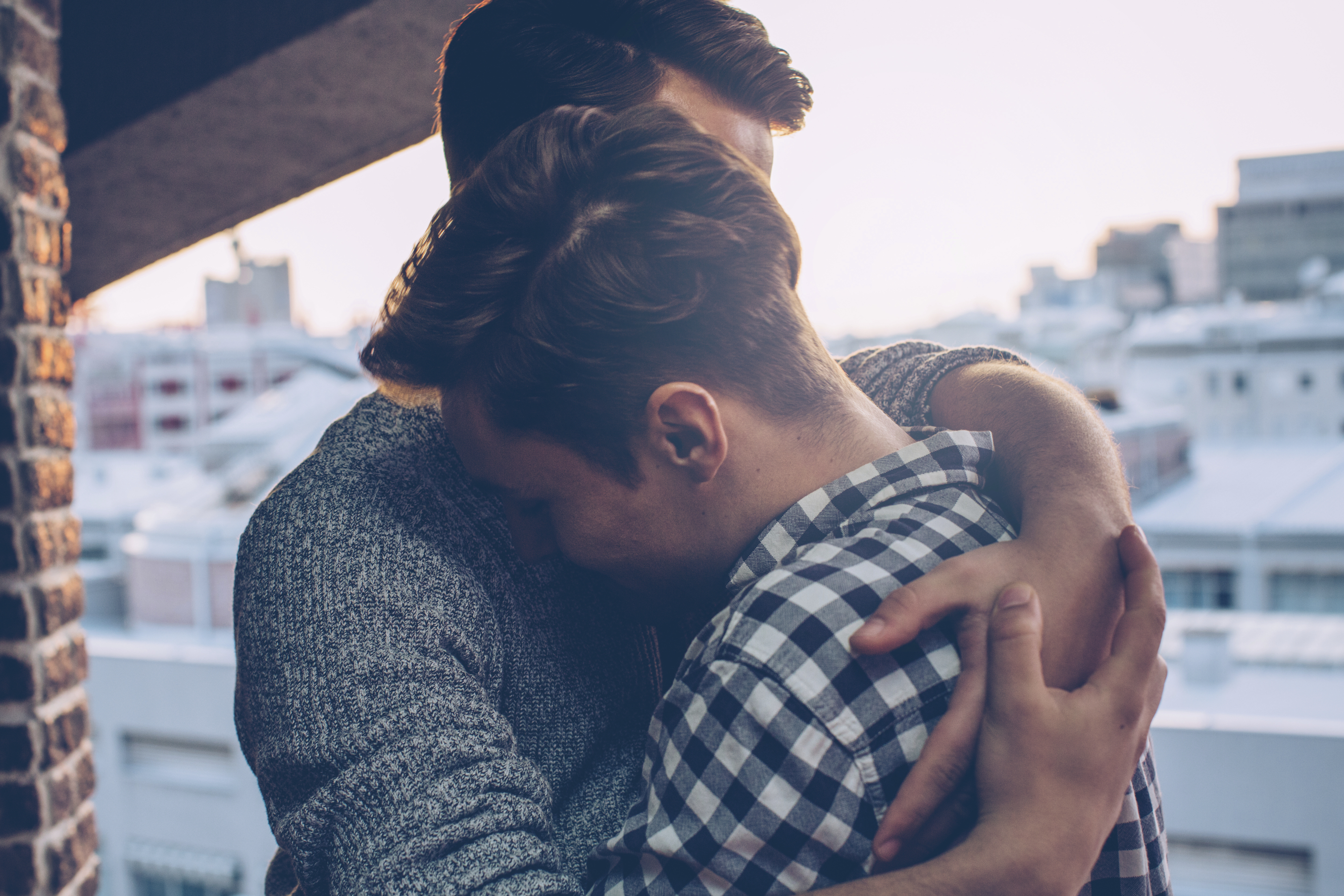Author: Justin Mckibben
We’ve all heard that oh-so-clever cliché that has been used by generic T-shirt makers and plastered on ironic bumper-stickers… “HUGS NOT DRUGS.” You may have heard it so often that it has become a bit irritating. Some guy at your favorite coffee shop who collects random graphic shirts with witty quotes probably wears that one like he invented it. But realistically, the concept of a “friendly neighborhood HUG dealer” is probably a lot more valuable than it sounds.
The truth is that when you take into account the impact of physiology on your sociology and psychology, it makes a lot more sense for most people. When examining the physical science behind our response to hugs, it should be obvious that dealing out hugs like it’s your business do well for our mental health.
Skin deep…
Ok, so remember in science class how they explained your skin is the largest organ of your body? Ok, show off, I don’t! But still, it is. While skin keeps a lot of the bad stuff out, it also takes in a lot. Skin collects external data from the world around us and sends it to the brain for processing. The most effect body parts for picking up precise pieces of sensory measurements are:
- Finger tips
- Soles of our feet
- Lips
Now knowing that, it makes sense that a hug provides us with a bevy of complex responses neurologically. A hug creates a reaction in the brain that is sent through our sensitive nerve endings, giving us a good feeling.
Cortisol
Research has told us that stress causes our body to produce a hormone called cortisol. Cortisol actually slows down the healing process while create something like cliff-note memories in the mind. These cliff-notes will be stored in relation to circumstances to teach us how to avoid that same stress in the future.
Another thing Cortisol does when we experience social rejection is make us more willing to make friends and establish connections. For example, if people are in stressful situation as a group, they often bond through their shared peril. When a natural disaster occurs communities unite, and we probably have Cortisol to thank for that. Stress creates an environment where we will seek comfort and protection through one another.
Oxytocin
Then through empathy we react in a supportive nature when someone we know is stressed. Naturally many people will offer a hug of support and compassion, thus igniting the body’s natural means of a “high” through Oxytocin!
Oxytocin itself is a neurochemical that has a few positive effects on an individual, including:
- Building trust
- Dissolving short-term memory
- Warm, fuzzy feeling
Researchers have even discovered that Oxytocin can speed the physical healing of wounds!
So when you offer someone in pain a hug it not only gets the Oxytocin pumping to keep those good feelings going, but it also helps the body disconnect from the memory of painful stimulus. Giving a hug not only jump-starts the body’s ability to heal, but protects it form creating harmful associations to circumstances.
2 Birds, 1 Hug
The big thing about being a “hug dealer” is that it is actually killing two birds with one stone- or two burdens with one hug.
How? Simple; doing good makes us feel good.
If you are an empathetic creature then you instinctively want to help heal someone who is hurting. When we see someone in great pain we intuitively put ourselves in their shoes and feel what they feel. Feeling their pain can get into our heart and soul. So we hug them to heal us both at once without even knowing it.
All together we can gather from this information that being a “hug dealer” makes an impact on the lives of both parties, and usually doesn’t result in indescribable misery or criminal charges… well, at least just don’t hug strangers without permission.
- A hug promotes social connections
- A hug relieves stress
- A hug helps build trust
- A hug promotes empathy
- A hug disrupts unhealthy memories of association
- A hug helps active the healing process
There are so many reasons why we are wired to find comfort and healing in a welcoming and supportive embrace. It communicates to us both directly and subconsciously that we are not alone and we do not need to suffer.
That’s why I am a “hug dealer,” because I see the value in offering comfort and connection to people in pain. I’ve known pain in my life; I know the value of a personal connection. Creating love and compassion in that kind of connection is the cheapest high I have ever known. Everyone should be a “hug dealer,” not just for others, but for their own good. It just feels good to embrace another person, especially when they need it most. Our bodies are just build that way, and we should take more advantage of it than we do. Look at the world around you- at your relationships and at your community- wouldn’t a hug once in a while help?
Come on, bring it in… first one is free!
Empathy, compassion and connection are much needed in the world today as a whole. For the addict, it may seem like something so far forgotten. In reality, connection is one of our deepest needs and can be the greatest natural high. If you or someone you love is struggling with substance abuse or addiction, please call toll-free 1-800-951-6135
